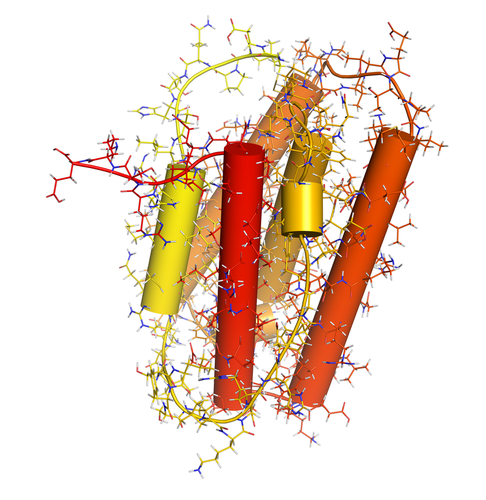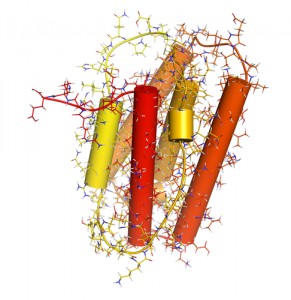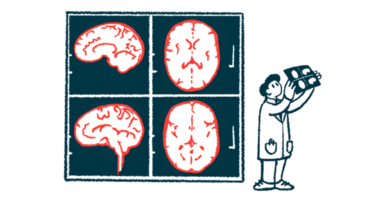Interferon Beta-1a Protects Relapse-Remitting MS Patients from Brain Volume Reduction

 Research from the State University of New York at Buffalo suggests a protective link between interferon beta-1a treatment and brain volume loss (atrophy) in patients with relapse-remitting multiple sclerosis. Michael Dwyer, PhD, presented his study at the 2014 Annual Meeting of the Consortium of Multiple Sclerosis Centers (CMSC) and the Sixth Cooperative Meeting with Americas Committee for Treatment and Research in Multiple Sclerosis (ACTRIMS).
Research from the State University of New York at Buffalo suggests a protective link between interferon beta-1a treatment and brain volume loss (atrophy) in patients with relapse-remitting multiple sclerosis. Michael Dwyer, PhD, presented his study at the 2014 Annual Meeting of the Consortium of Multiple Sclerosis Centers (CMSC) and the Sixth Cooperative Meeting with Americas Committee for Treatment and Research in Multiple Sclerosis (ACTRIMS).
Dr. Dwyer described the details of the team’s 24-week study of 23 relapse-remitting multiple sclerosis patients and 15 healthy controls. Patients were treated with subcutaneous interferon beta-1a three times a week, and both groups were evaluated through magnetic resonance imaging at baseline, 3 months, and 6 months.
From baseline to three months, a significant difference was seen in brain volume for the multiple sclerosis patients (-0.95%), but not in the healthy controls. This was the only period that experienced a change: baseline to six months and three months to six months showed no change.
The team noticed a decreased percentage of CD4+ T-cells that significantly correlated with reduced brain volume. It appears as though interferon beta-1a had an anti-inflammatory effect by reducing the number of CD4+ T-cells, which produce the inflammatory protein interleukin-17F. It was concluded that interferon beta-1a acts early to reduce inflammation and prevent further brain atrophy in multiple sclerosis patients.
[adrotate group=”4″]
The Meeting was held May 28-31 in Dallas, Texas, and was directed toward an audience of healthcare professionals and researchers. Many presentations were delivered with the goal of increasing knowledge in regard to disease management, rehabilitation, skills development, and other vital areas in multiple sclerosis care.






